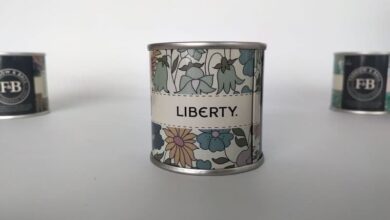Finding The Right Partner Is Key To Success
The Italian brand Prati with its forty years experience is today considered to be one of the longest operating companies in the self adhesive finishing market. Their major products include inspection machines for self adhesive labels, modular converting and finishing line, booklet and ECL maker, total security line for inspection of pharma labels and matrix scraper. The company’s executives are always on the move to interact with their customers and to coordinate sales activities. Chiara Prati, Sales Director of Prati and daughter of the founder of the company was on one such visit, when ME Printer met her at Dubai. She discussed with us the relevance of the company under the changing circumstances, “Prati is today the world’s third longest running company in the self adhesive finishing sector and our solutions support different label printing technology. Even though digital printing is gaining ground these days, I think that printing and finishing is interlinked and the latter will be here to stay for a very long time.”
Chiara observed that increasing competition in the printing arena is a good sign and said that it will pave way for new technologies that will raise the market standards. “A manufacturer, who invests in the right technology, will always be flexible to face future challenges.”
When asked about the quality that differentiates Prati from other companies, Chiara said, “The linear concept of our machines is what differentiates us from the rest. We offer solutions that combine technological experience and knowhow and we are practically fit to face challenges. Our linear concept helps printers to print on different types of substrates including PP or ultrathin layers. Prati machines are designed to give customers an added value to their investment and help them in growing their business. I believe that for a label printer or those who want to venture into label printing business, finding the right partner is very essential for the future of their operations. Right now we are doing a good job, and that includes Middle East as well. We have done more than 35-40 machine installations in this region. As more printing presses are sold, the more will be the demand for finishing machines.”
Essentials of a Right Partner
Chiara maintains that a local partner is essential for the smooth functioning of any business. “We always try to have a local partner, as it’s important to keep daily contact with the customers by someone who can speak in their language. The partners’ must be able to relate with the customer at their level. Our partners provide commercial as well as technical services to our customers. A local distributor is very important not only from the sales aspect but also for providing support services.”
In Middle East, Printech ME is the exclusive distributor for Prati. Chiara explained, “We have been working together since 2007 and we are very happy with their services. Talking of installations, in UAE we have so far done 20 and we see a growing market in Saudi for labels. Earlier, Saudi used to import labels from UAE and now they are catching up on their in-house potentials.”
A Little History
Prati, which was founded in 1973, has over 40 years of experience in the finishing industry. “My father, Pietro Prati, founded the company in the year 1973. He is a mechanical engineer with a lot of interest for electronics. The company was started to refurbish big offset presses like manroland and KBA. Ours was the first company to show a servo inspection slitter re-winder with PLC at Drupa during the ‘80’s.”
“In order to be successful, a right partner is very essential. Investing in the right technology is also essential because to reap success you need the support of a good company as well as their knowhow,” concluded Chiara.




